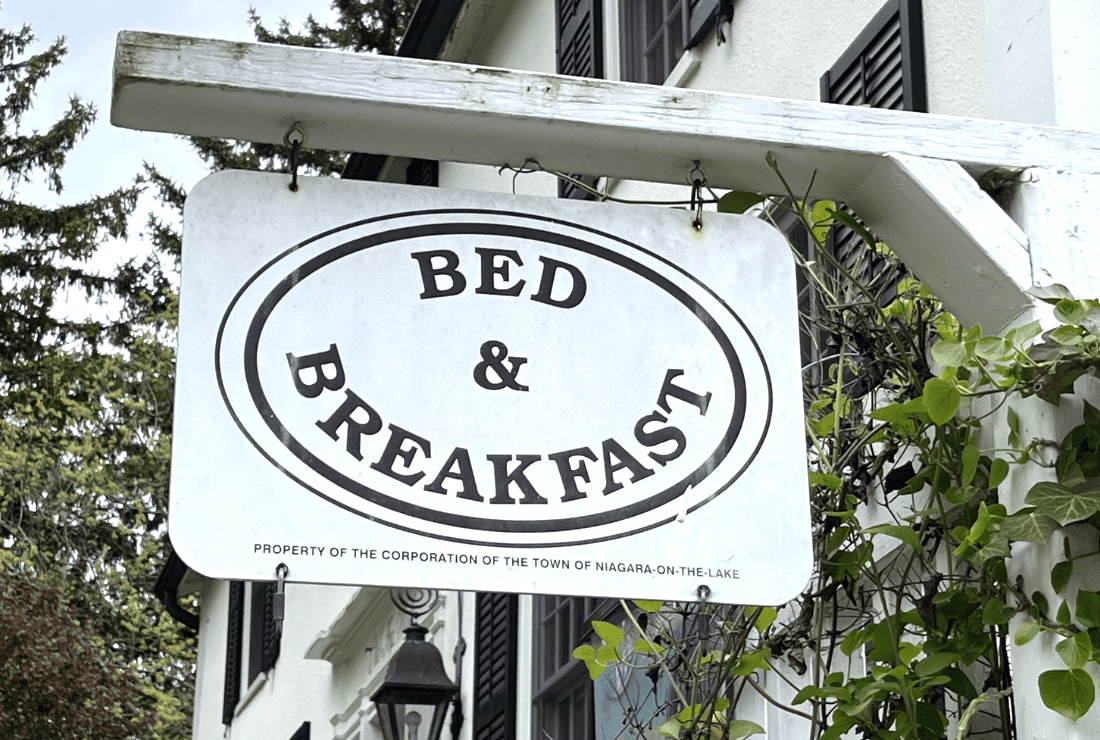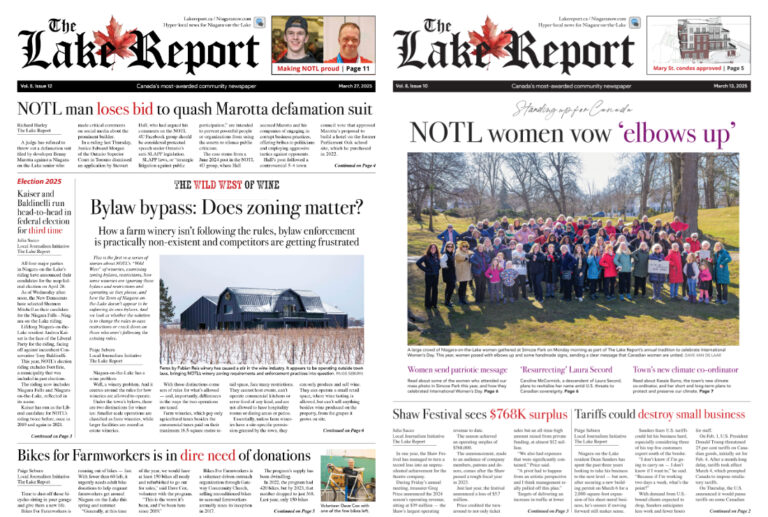Steve McGuinness
Special to Niagara Now/The Lake Report
There is a growing consensus, both within our town and beyond, that using family homes as short-term rental accommodation is undesirable in the current housing crisis.
A recent Toronto Life cover story heralds an uprising to liberate cottage country from the clutches of short-term rental operators (“Big Trouble in Cottage Country,” July 23).
Governments can use tax policy as a tool to halt socially undesirable business and consumer trends, like short-term rentals.
Much of the NOTL room inventory available for overnight tourist stays is in smaller country inns, cottages and BnBs. Our town council has ceased issuing new licenses to these operations.
Concerns seem to centre less on the longer-established “hosted” BnBs — where homeowners share rooms in their own homes with guests — and more on absentee landlords using third-party web-based platforms to carry on a business.
Toronto and Ottawa no longer allow short-term rentals except within an owner’s principal residence.
Residents living on our once quiet town streets, in homes neighbouring unhosted short-term rental sites, complain about irresponsible renting to unruly groups.
Loud outdoor bachelor(ette) groups partying in backyard hot tubs into the early morning hours is increasingly common.
Town bylaw enforcement officers are not available 24/7 to fine offenders and regional police turn deaf ears, despite NOTLers paying more per capita for policing than other Niagara municipalities.
Against this backdrop, there is a simple property tax adjustment with the power to significantly squeeze unhosted short-term rental profitability.
Although the Canada Revenue Agency taxes profits from short-term rentals as income from property or carrying on business, the town imposes property tax at residential rates.
If unhosted short-term rentals were instead assessed at commercial rates (up to three times higher), operators would incur incremental costs, reducing profitability.
Closing this tax loophole could withstand Ontario Land Tribunal challenges better than other control measures defended by other municipalities.
Additionally, although short-term rental operators must remit Municipal Accommodation Tax at the same 4 per cent rate as hotels (far below the 8.5 per cent Toronto charges), the town has no active audit programs to detect or prevent under-remittances.
Imposing higher taxes would make unhosted short-term rentals less financially lucrative, incenting existing owners to sell out.
This would restock more properties for use as owner-occupied family homes while leading to fewer sales by unhappy residents fleeing town to escape over-tourism.
Lost short-term rental room inventory will be offset by new hotel construction coming on stream at Parliament Oak and Clayfield – Garrison Common.
Meanwhile, the Scotsman Hotel is seeking a precedent-setting rezoning order to allow a hospitality area serving food and beverages.
Granting this proposal would override a long-standing rule permitting breakfast service only at these smaller inns. Short-term rental operators could seek similar treatment.
Clearly, broadening after-breakfast food offerings in liquor-licensed lounges is inconsistent with a short-term rental reduction objective.
Council should advance short-term rental property tax reform, while maintaining current restrictions and strengthening bylaw enforcement.
Collecting more revenues from short-term rentals would also relieve property tax pressures imposed on average homeowners, escalating at rates exceeding general inflation.
It would be a proactive use of tax policy to induce positive change.
In his Bay Street career, Steve McGuinness was a senior advisor to large financial institutions and is now retired in NOTL. Send your personal financial planning questions to him at smcgfinplan@gmail.com.










